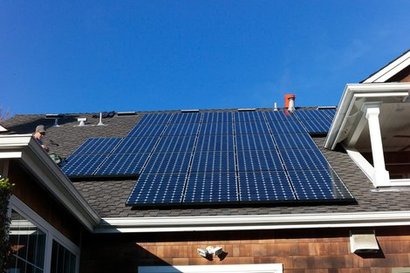
Speaking at the 9th SNEC International Photovoltaic Power Generation Conference & Exhibition in Shanghai, EPIA President Oliver Schaefer outlined the new position of EPIA on the solar modules and cells trade case between China and the EU. He stated that the EPIA is a strong supporter of free and fair trade and that the association would like to see trade relations between Europe and China, on solar modules and cells, return to normal as soon as possible when the duties and respective price undertaking expire in 2015.
Anti-dumping and countervailing duties have been applied in Europe since December 2013. The duties cover crystalline silicon modules and cells originating in or consigned from China and are due to expire in December 2015. The duties may have played a part in the slowdown in annual growth of installations in Europe.
“The Board has agreed this position, as we believe that a return to a level playing field will help solar power in Europe to grow, and support the European electricity market in achieving its challenging emission reduction goals” said Mr Schaefer. “Consumers will also be able to buy quality products manufactured at scale, at the best possible prices.”
The EPIA supports European production, research and development, as well as applications, in all segments of the solar power value chain. Europe has a strong solar sector, including manufacturing, development, operations and maintenance, power system integration and many other segments and EPIA estimates that employment in the sector amounted to around 256,000 full time jobs in 2011. More than half of these jobs are now gone according to International Energy Agency (IEA) estimates. The majority of the losses were in the labour-intense installation sector. Economic growth and employment opportunities across Europe in the sector are now offered in the solar value chain.
Mr Schaefer added that the EPIA supports all actions that can contribute to increased solar job creation in Europe, alongside the solar value chain. He said that taking such a position on the trade case supports this objective.
EPIA also believes that the full benefits of solar power for European citizens and customers depends on continuous innovation through research and development. This should be focused on targeting higher quality solar panels and a high level of requirements for technical and environmental performance of solar products and systems. Global value chains reflecting real costs of production and free from trade barriers are a prerequisite for economies of scale and related cost reductions. More competitive, high-quality solar panels from the world’s leading companies can increase the rate and quality of solar installations in Europe according to the EPIA.
For additional information:

